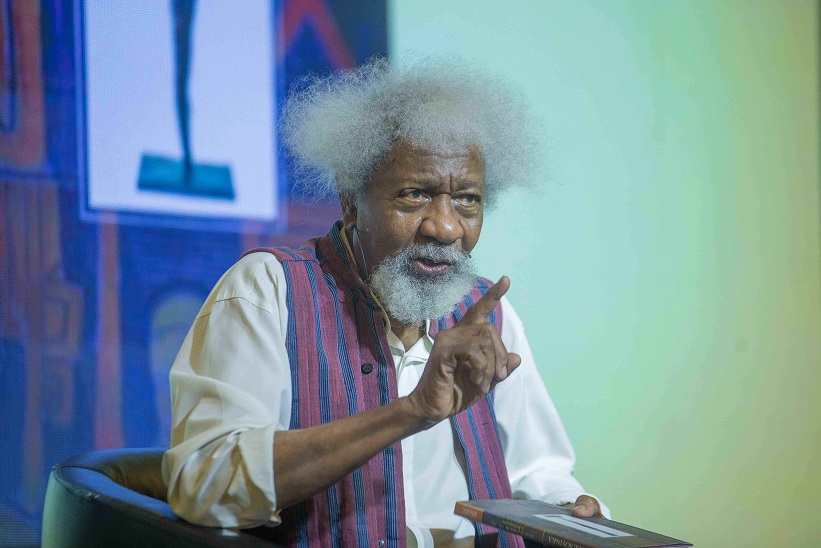Nobel Laureate Professor Wole Soyinka has called on President Bola Tinubu to immediately order an investigation into the mysterious deaths of several prominent Nigerians, including Dele Giwa, Bola Ige, and Kudirat Abiola, to help bring closure to their unresolved killings.
Speaking to a group of journalists in Lagos on Saturday, Soyinka suggested that Nigerians both within and outside the country may hold valuable information that could shed light on these unresolved cases.
His remarks came as Nigeria marked Democracy Day on June 12, 2025. During the celebrations, President Tinubu addressed a joint session of the National Assembly and conferred national honours on some individuals recognised as heroes of the democratic struggle.
Although Soyinka praised the honours bestowed, he pointed out that several key figures were omitted from the list. However, he expressed the view that the recipients represented a broader group of those who fought for democracy.
Soyinka also revealed his personal decision to dedicate his national honour to the late Beko Ransom-Kuti, whom he described as “a defender of human rights, champion of good governance, and campaigner for democracy,” noting that Ransom-Kuti had been imprisoned multiple times by the military regime.
Soyinka speaks further
He further cautioned against minimising the significance of the June 12 struggle, emphasising that countless people paid the ultimate price or endured severe suffering at the hands of the military government during that era. “Many people died, and many others were greatly injured by the military junta, which killed, tortured and imprisoned Nigerians at the time,” he said.
Soyinka’s appeal came shortly after the presidency denied awarding national honours to activist Aisha Yesufu and 35 others, following public confusion over the full list of honorees.
The official list, announced by President Tinubu on Thursday, June 13, during a joint session of the National Assembly, included 66 individuals recognised as heroes of democracy. Among those honoured posthumously were Shehu Musa Yar’Adua, former Chairman of NEC, Humphrey Nwosu, who oversaw the 1993 elections, and Kudirat Abiola, the slain wife of late MKO Abiola.
Tinubu also announced a state pardon for environmental activist Ken Saro-Wiwa and the other members of the Ogoni Nine, who were executed under the regime of late military ruler Sani Abacha.
“I also confer posthumous national honours on Ken Saro-Wiwa (CON), the leader of the Ogoni Nine and his fellow travellers,” Tinubu declared.
Soyinka continued, “I shall also be exercising my powers under the prerogative of mercy to grant these national heroes a full pardon, together with others whose names shall be announced later in conjunction with the National Council of State.”
Under the honours, Ken Saro-Wiwa received the Commander of the Order of the Niger (CON), while the remaining eight were awarded the Officer of the Order of the Niger (OON).
This marks the first time a Nigerian president has officially acknowledged the Ogoni Nine’s role in Nigeria’s democratic evolution and initiated state-led steps to rehabilitate their legacy.
The Ogoni Nine were leaders of the Movement for the Survival of the Ogoni People (MOSOP), which campaigned against oil-related environmental degradation in the Niger Delta. Their controversial executions in 1995 sparked international condemnation and led to Nigeria’s temporary suspension from the Commonwealth.
The others honoured alongside Saro-Wiwa include Saturday Dobee, Nordu Eawo, Daniel Gbooko, Paul Levera, Felix Nuate, Baribor Bera, Barinem Kiobel, and John Kpuine—all executed after a military tribunal found them guilty in a trial widely criticised as politically motivated and deeply flawed by human rights organisations around the world.



